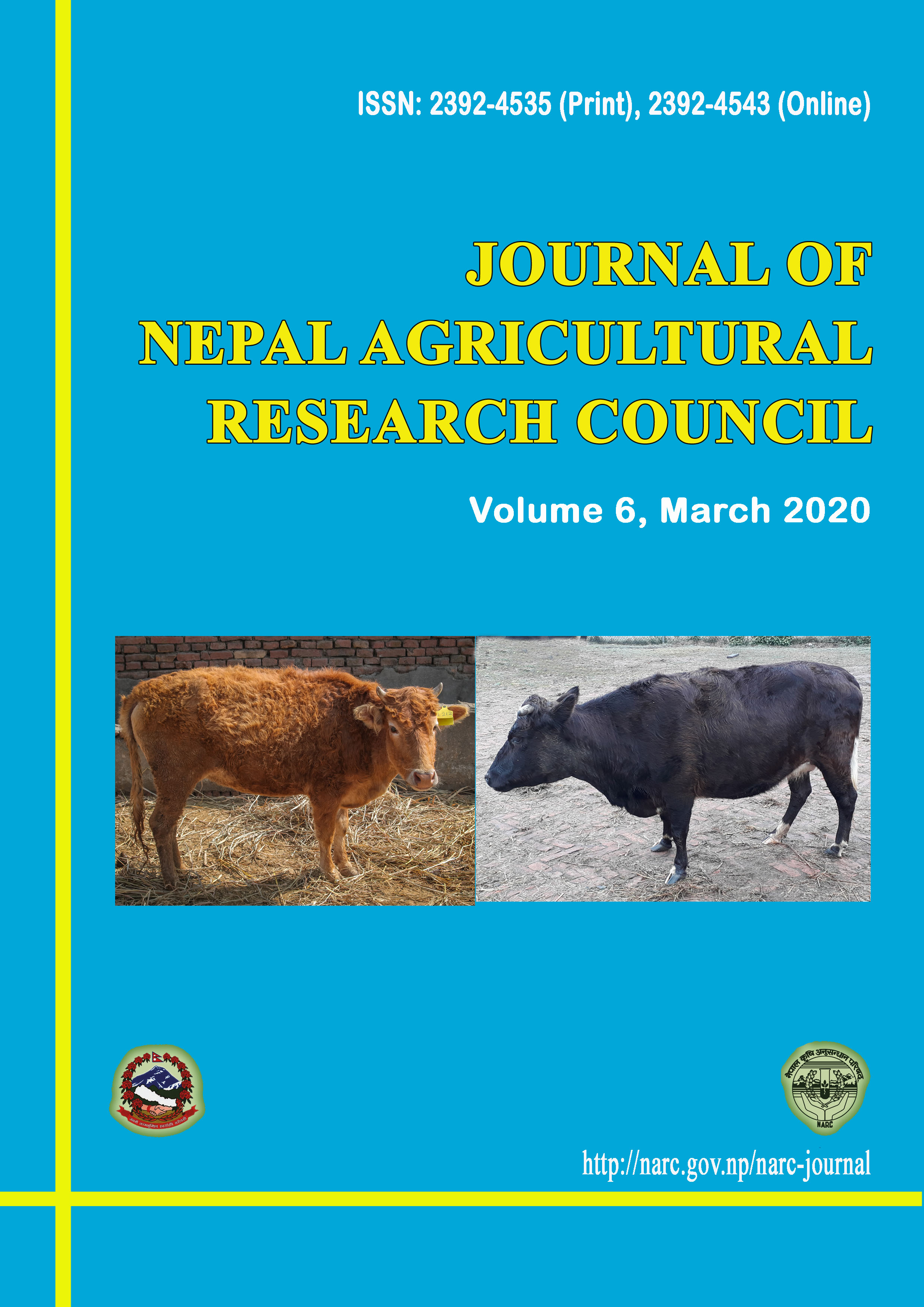PCR Based Genotyping of Lulu Cattle of Nepal for A1, A2 Type Beta-caseins
DOI:
https://doi.org/10.3126/jnarc.v6i0.28115Keywords:
Lulu, CSN2 gene, A2 variant, RFLP, sequencingAbstract
Lulu is an indigenous breed of cattle (Bos taurus) found in high altitude regions of western Nepal. Population of Lulu cattle has been declining due to introgression with other exotic breeds to increase milk productivity. Here we aimed at finding potential approach for conserving Lulu cattle and its assets by studying the milk contents and investigating which variant of beta-casein protein is present in this breed. Beta caseins are an abundant protein in cow milk with A1 and A2 being the most common genetic variants of this protein. Consumption of A1 type of milk has numerous health-related complications whereas A2 type of milk has numerous human health promoting factors. We used restriction fragment length polymorphism (RFLP) for determining the A1 and A2 variant of beta casein in Lulu cattle. For performing DNA extraction, we collected (n = 18) blood samples of Lulu from Mustang and (n=17) Nepal Agriculture research council farm. The amplified fragments in 3% agarose at 251bp and 213bp respectively confirmed the presence of both A1 and A2 gene in Lulu; however, A2 was of greater abundance. Our study indicated that Lulu has A2 variant of beta-casein predominantly. The gene frequency of A1A1 is 0, A1A2 is 0.06 and A2A2 is 0.94. We further found that the allele frequency of A1 and A2 is 0.03 and 0.97 respectively. We designed special primer for sequencing CSN2 genes since A2 type beta casein gene was predominantly seen on Lulu. The sequencing result further supports our RFLP result as most of our samples have “C” nucleotide SNP in amplified CSN2 gene sequence. The Chi-square value of the current study is 0.04 which supports Hardy-Weinberg equilibrium inferring that Lulu cattle are still in the pure state, where there is no genetic introgression with the exotic breed for the sake of improvement of productivity.




